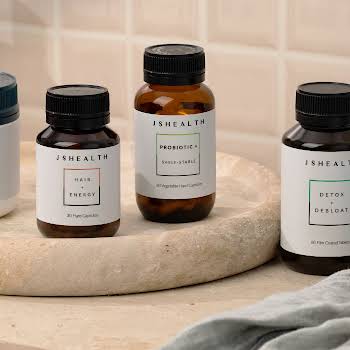Ask the Doctor: ‘Should I take a multivitamin in winter? If so, what should I be looking out for in a multivitamin tablet?’
By Sarah Gill
16th Jan 2024
16th Jan 2024
All your burning health questions answered by the professionals.
“I am a 40-year-old woman in pretty good general health. My diet is fairly good with lots of fresh vegetables and a mix of fish, meat and dairy. I see a lot of ads for various multivitamins this time of year. Is it necessary to take a multivitamin in winter? If so, what are the particularly important vitamins I should be looking out for in a multivitamin tablet?”

Answer from Ríona Tumelty, Medicines Information and Research Pharmacist, Beacon Hospital
Vitamins and minerals are micronutrients the body requires to help it function properly. Our bodies cannot produce most vitamins and minerals so we need to get them regularly from other sources, most often through diet. Eating a healthy, balanced diet is the best way to ensure you are getting sufficient vitamins and minerals that your body needs to maintain good health.
Multivitamins are supplements that contain many vitamins, minerals and sometimes other ingredients too. The content of individual multivitamin preparations can differ significantly, with different combinations of supplements, in varying amounts. They often contain additional nutrients that you may not require.
For most people who maintain a balanced healthy diet, multivitamins are not necessary. However, for some people at risk of deficiencies, multivitamins can be a useful tool to optimise health. A vitamin or mineral deficiency happens when you are not obtaining the required levels over a long period of time.
Examples of those who may be at greater risk of deficiency include patients with poor-quality diets (e.g. low fruit and vegetable intake), conditions resulting in malabsorption or those with a vegan diet. In these instances, and for those with pre-existing medical conditions it would be beneficial to discuss any potential requirement for supplement with your local pharmacist, a dietitian or GP as they can tailor advice specifically to you.
Vitamin D is somewhat different from other vitamins in that the main source is from sunlight (although a smaller amount can be sourced from diet). Vitamin D helps regulate the amount of calcium and phosphate in the body to help keep bones, teeth and muscles healthy. Throughout autumn and winter, the sun is not strong enough for your body to make Vitamin D. As it is difficult to get all the vitamin D we need from diet alone, supplementation may be beneficial at this time of year.
When considering a supplement, identify where the gaps are in your diet and any concerns you have about your health. Seek advice from a healthcare professional, such as your local pharmacist, on what preparation might be best for you. Advice may vary depending on age, sex and physiological state, such as during pregnancy or when breastfeeding. Remember — multivitamins are available to complement a balanced diet rather than replace meals. If there is an opportunity to improve diet, this should also be considered.
Visit the HSE website for more information on individual vitamins and minerals.
Have a question for the professionals you’d like answered? Get in touch with sarah.gill@image.ie with the subject headline ‘Ask The Doctor’.






















